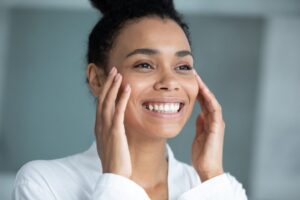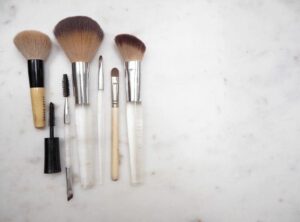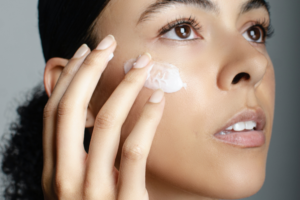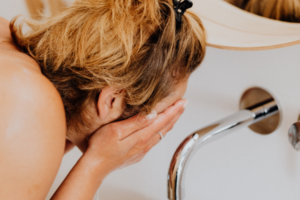Healthy Skin
6 common skincare sins you might be guilty of
From finding beauty products that work to keeping a handle on your skin type, skincare can be a tricky business. Added to that, many of us commit common ‘skincare sins’ without even realising.
So how many of them can you tick off? Read on to discover the skincare sins that could be costing us our complexion…
Common skincare sins to avoid
Over exfoliating
 When our skin feels dry, it can be tempting to give it a good scrub to free it from any flakiness. But, while physically exfoliating may make it feel softer and smoother, scrubbing your skin too hard can make matters worse in the long run.
When our skin feels dry, it can be tempting to give it a good scrub to free it from any flakiness. But, while physically exfoliating may make it feel softer and smoother, scrubbing your skin too hard can make matters worse in the long run.
Skincare expert and founder of skin health brand, IIAA, Tracy Tamaris has a view on this and says: “This is a sin we are all guilty of and one that is easy to rectify.
“The very top layer of our skin is called the stratum corneum and is made up of layers of flattened cells and lipids. It is only 200th of a millimetre thick and is what protects us from environmental damage and keeps moisture in our skin.
“If we remove it, we expose cells that are not yet fully matured and they go into shock. Short term, our skin looks smooth and hydrated but long term it will end up being thin, dry and easily irritated, in addition to being more susceptible to harmful UV rays and pollution.”
So, what should we do instead?
“Stop with the regular exfoliation and use actives such as Vitamin A,” Tracy shares. Vitamin A, also known as retinol, helps speed up the cell turnover process, revealing smoother, plumper skin.
Dirty makeup tools
 When did you last wash your makeup brushes? Probably not as recently as you care to admit.
When did you last wash your makeup brushes? Probably not as recently as you care to admit.
Makeup application tools can quickly harbour bacteria, which can lead to breakouts when used on our complexions.
Experts say that we should be washing our brushes every one to two weeks with a mild shampoo – depending on how often you’re using them.
Making this part of your Sunday evening routine ahead of the week ahead can ensure they are kept clean.
Hot water
While it can be tempting to turn up the temperature on the taps, washing our face in water that’s too hot can actually make it drier (which might already be a problem for menopausal skin).
Hot water can strip the skin of some of its essential oils, dehydrating and drying it out.
Instead, most dermatologists say we should use warm water when cleansing our face, using gentle motions.
SPF protection
By now, we all know that we should be wearing SPF to protect our skin from harmful UV rays when the sun’s rays are strong (yes, even in winter).
But according to Tracy, we should also be a bit smarter when it comes to SPF protection.
As she explains: “I would also say, relying solely on synthetic chemicals for sun protection is something people can be guilty of.

“There is sufficient research to show that if we don’t constantly reapply chemical sunscreen the very synthetics we are using for protection turn into damaging free radicals in our skin.
“In order to avoid this and as a way of broadening the scope of protection it’s essential to include a brigade of essential antioxidant vitamins. These will also help protect the mitochondria of our skin cells as well as help protect us from infrared light and blue light. These are spectrums that aren’t often covered by conventional SPFs.
“Choose lightweight physical (mineral) sunscreen with essential antioxidants to fight free radical damage, such as Environ RAD Shield Mineral Sunscreen, for broad protection against UVA and UVB rays.”
Using free-radical fighting vitamin C serum under your SPF can make it work harder too.
Layering
When it comes to skincare, we need to be mindful of the products that we’re layering.
Some ingredients shouldn’t be used together as they can damage the skin barrier, so it’s important to read labels.
For example, never use vitamin C and retinol together at the same time. You can, however, use one in the morning and the other at night.
AHAs and BHAs shouldn’t be used with vitamin C or retinol, and glycolic acid and salicylic acid shouldn’t be used together either.
Sleeping in makeup
 Some nights, taking your makeup off feels like a real chore. But experts agree that it is an essential step in our beauty routine, no matter how tired we might be.
Some nights, taking your makeup off feels like a real chore. But experts agree that it is an essential step in our beauty routine, no matter how tired we might be.
Sleeping in makeup is a big skincare no-no as it can leave skin looking dull and result in clogged pores.
If you go to bed wearing makeup regularly you may notice more blackheads and breakouts on your complexion.





